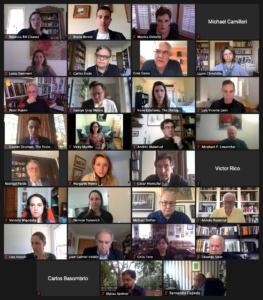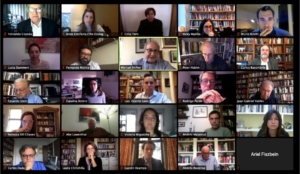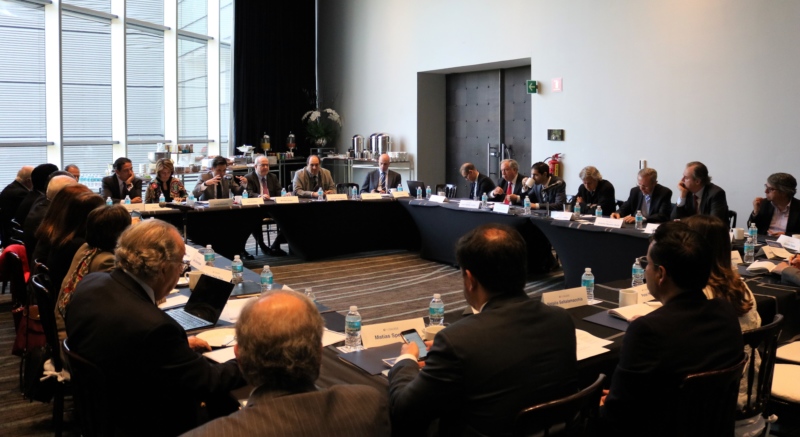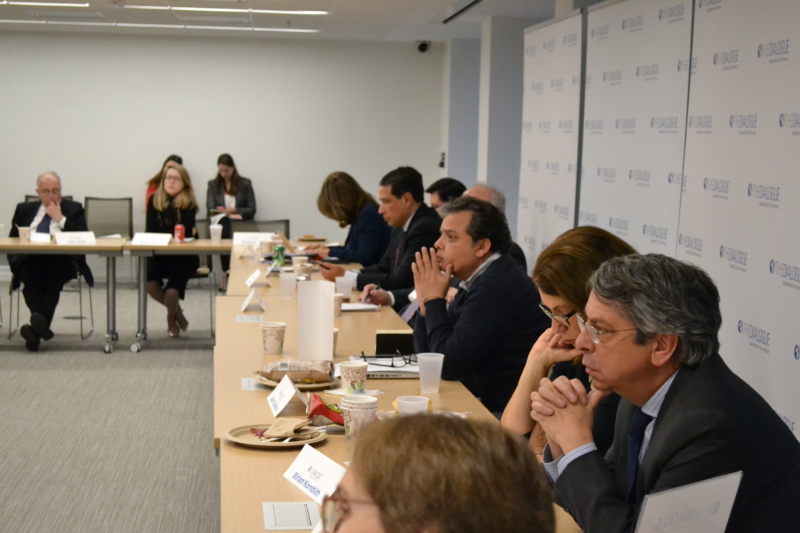Working Group on Latin America
Started in 2001, the Working Group on Latin America is one of the longest-running and most successful initiatives at the Inter-American Dialogue. It brings together a select group of political, academic, and civil society leaders from across Latin America to discuss the most pressing issues facing the region. Sessions are intended not only to help shape the Dialogue’s agenda but also to guide policy cooperation in a broader sense.
“No group is better suited to address major challenges in the region than the Dialogue’s Working Group on Latin America”.
Marta Lucía Ramírez, Vice President of Colombia
The working relationships forged in these meetings often motivate many of the members to stay in touch during the year for the purpose of discussing current events. This in itself is a considerable contribution. Despite extensive political, cultural, and geographic links among countries, opportunities for experts to connect in a meaningful and substantive way are unfortunately rare. These contacts help the participants generate greater and higher-quality analysis and elevate debates around hemispheric issues in every country.
The group meets annually, traditionally alternating between Washington, DC, and cities in Latin America. Meetings have been convened over the years in Mexico City, Bogota, Lima, Quito, Santiago, and Rio de Janeiro. Funders of this initiative have included the Swedish Agency for International Development, the Ford Foundation, Open Society Foundations, and CAF.
Recent Meetings
|
Follow-Up Meeting 2021 |
33rd Meeting 2020 |
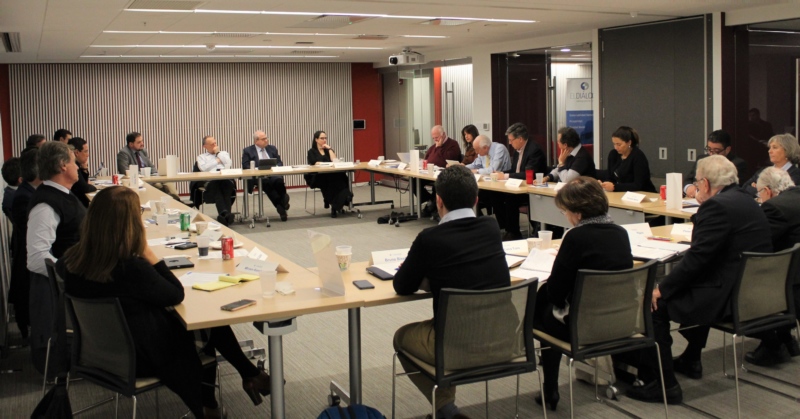 32nd Meeting 2019 |
|
31st Meeting |
|
History of the Group
The early days: Colombia Working Group
The Working Group on Latin America began in 2001 as the Colombia Working Group, originally 25 experts who met to debate the country’s challenges and discuss effective solutions to the armed conflict and drug-related violence that Colombia had long faced. Participants included Rafael Pardo, Fernando Cepeda Ulloa, Malcolm Deas, and Joaquín Villalobos, among others. In its second meeting, the group was expanded to include a larger number of European and Latin American participants, including Olof Skoog, Yolanda Kakabadse, Carlos Basombrío, Monica Hirst, and Miriam Kornblith, among others.
In 2002, the Colombia Working added new members to its group, including Diego García-Sayan and Andrés Rozental. That year, the group published working papers on the conflict in Colombia, the peace negotiations, and prospects for peace in the country. Antonio Navarro, Mariano Aguirre, Thomaz Costa, Gustavo Gorriti, and Sabine Kurtenbach joined in 2003.
Broader Focus: Andean Working Group
As the security situation in Colombia improved, and while its neighbors began to face political crises, the initiative began to take on a more regional focus, becoming the Andean Working Group. At that point—in 2004—the group expanded to approximately 30 to 35 participants, including analysts from Bolivia, Ecuador, Peru, and Venezuela.
A Regional Perspective: Working Group on Latin America
In 2011, the group again expanded its analytical frame to include perspectives from all of Latin America. Since then, sessions have addressed issues of relevance for the region in general and new participants from outside the Andean Region joined.
In 2012, the Dialogue hosted two meetings of the group. In January, the working group convened in Bogotá for its 22nd meeting, which focused exclusively on Colombia. Participants discussed pressing political, economic, and security challenges facing the administration of President Juan Manuel Santos. The group’s considerations were then communicated through private meetings with Foreign Minister María Ángela Holguín, US Ambassador Michael McKinley, and President Santos. In July 2012, participants discussed the election of Enrique Peña Nieto to the Mexican presidency, the challenges that faced Ollanta Humala during his first year as Peru’s president, developments in Colombia, and political scenarios in Bolivia, Ecuador, and Venezuela.
Today: Virtual Meetings of the Working Group
In 2020, due to the Covid-19 pandemic, the working group met virtually for the first time in its history. Virtual platforms enabled very strong participation and fluid discussion. A follow-up virtual meeting was held in early 2021 to discuss those topics and countries that were not addressed during the first virtual session.
Working Group Members
The Inter-American Dialogue aims to continue growing the membership of the Working Group on Latin America while not losing the focus and rapport that the group has developed over the years. Participants are able to debate frequently, repeatedly, and in an off-the-record setting in a spirit of mutual trust.
Working Group members change for every meeting, and special guests are also invited to brief the group on specific topics. These are just some of the members that have joined us over the years:
Carlos Basombrío – Former Minister of the Interior, Peru
Rebecca Bill Chavez – Non Resident Senior Fellow, Inter-American Dialogue
Bruno Binetti – Non Resident Fellow, Inter-American Dialogue
Monica de Bolle – Senior Fellow, Peterson Institute for International Economics; Dialogue Member
Catalina Botero – Dean of the Law School, Universidad de los Andes; Dialogue Member
Fernando Cepeda Ulloa – Colombian Political Scientist, Professor & Diplomat; Dialogue Member
Laura Chinchilla – Former President of Costa Rica; Co-Chair, Inter-American Dialogue
Gino Costa – Member of the Congress of the Republic of Peru
Carlos Dada – Journalist & Director, El Faro, El Salvador
Lucia Dammert – Associate Professor, Universidad de Santiago de Chile
George Gray Molina – Advisor, Regional Bureau for Latin America and the Caribbean at UNDP; Dialogue Member
Peter Hakim – President Emeritus & Senior Fellow, Inter-American Dialogue
Luis Vicente Leon – Director, Datanálisis, Venezuela
Abraham F. Lowenthal – Professor Emeritus, University of Southern California; Dialogue Member
Andrés Malamud – Senior Research Fellow at the Institute of Social Sciences of the University of Lisbon
César Montúfar – Political Scientist & Professor, Ecuador
Maria Victoria Murillo – Director, Institute of Latin American Studies and Professor, Columbia University
Rodrigo Pardo – Colombian Journalist & Former Foreign Minister
Andrés Rozental – Mexican Career Diplomat; Dialogue Member
Natalia Saltalamacchia – Professor, Instituto Tecnológico Autónomo de México (ITAM)
Michael Shifter – President, Inter-American Dialogue
Matias Spektor – Associate Professor of International Relations, Fundação Getúlio Vargas; Dialogue Member
Eduardo Stein – Diplomat & Former Vice President of Guatemala; Dialogue Member
Maria Celia Toro – Professor, International Studies Center, Colegio de México
Juan Gabriel Valdés – Chilean Diplomat, Former Foreign Minister & Ambassador
Photos
 |
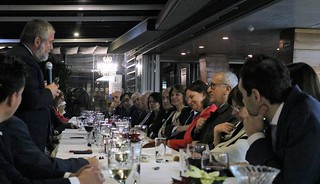 |
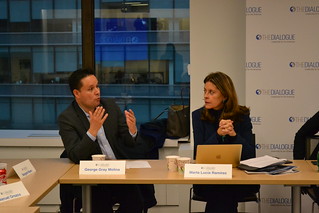 |
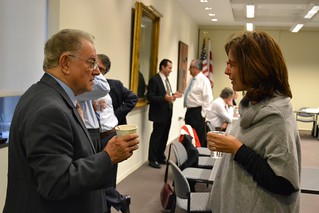 |




















